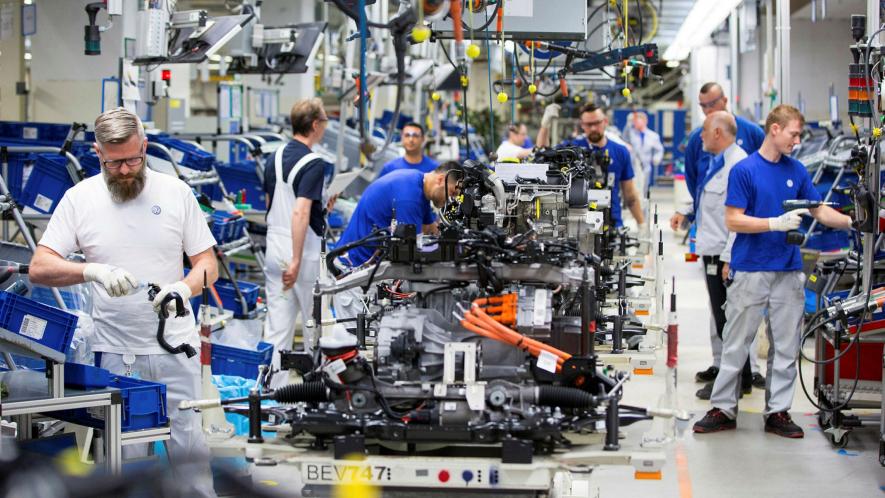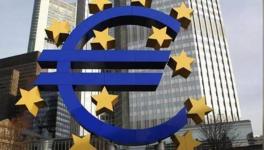Pandemic Blow: Germany in Recession, Economy Shrinks 2.2% in First Quarter

Image Courtesy: Financial Times
Berlin: The German economy shrank by 2.2% in the first quarter compared with the previous three-month period as shutdowns in the country and beyond started to bite, official data showed Friday.
That means Europe's biggest economy went into recession following a small dip at the end of last year.
The figures from the Federal Statistical Office offered a first glimpse of the damage caused by the coronavirus crisis, which the government is trying to limit with rescue programmes and has pushed other big European economies, like France and Italy, into recession.
The decline in the January-March period was the second-biggest quarterly decline since Germany was reunited in 1990, exceeded only by a 4.7% drop in the first quarter of 2009 at the height of the global financial crisis, senior statistics office official Albert Braakmann said.
It followed a 0.3% gain in last year's third quarter and a 0.1% contraction in the fourth quarter — the latter figure revised down from the initial report in February of zero growth. That revision put Germany into a technical recession, defined as two consecutive quarters of economic contraction. In year-on-year terms, the economy took a 2.3% hit.
March was the month in which the coronavirus pandemic hit Europe, with first Italy and then other countries imposing sweeping restrictions on public life and businesses.
Germany itself started shutting down in mid-March. Its lockdown was less severe than those imposed in Italy, Spain and France and it never ordered factories closed, but companies did largely stop production in some areas — such as the automaking sector — and supply chains were disrupted.
Recent data showed a 15.6% month-on-month decrease in factory orders in March, and a 9.2% drop in industrial production. Exports dropped 11.8%, the strongest decline since Germany reunited in 1990.
The country started loosening restrictions on April 20 and the process has gathered pace recently. Shops have now reopened, restaurants are gradually opening up and auto production has restarted.
A far worse economic performance is expected in the current second quarter.
The German economy “will start to defreeze” in May, Allianz economist Katharina Utermoehl said in a research note.
“In the short term, some catch-up effects can be expected, but the economy's underlying growth momentum is likely to pick up only gradually in the coming months.” With millions of people in a government-backed short-time work programme and unemployment rising, consumers are likely to refrain from making major purchases, she said.
Data already released have shown that the 19-nation Eurozone's economy shrank by a record 3.8% in the first quarter as business activity was frozen. France and Italy showed both fell into recession, with the French economy shrinking 5.8%, the most since the country's statistics agency began keeping the figures in 1949.
Get the latest reports & analysis with people's perspective on Protests, movements & deep analytical videos, discussions of the current affairs in your Telegram app. Subscribe to NewsClick's Telegram channel & get Real-Time updates on stories, as they get published on our website.


















